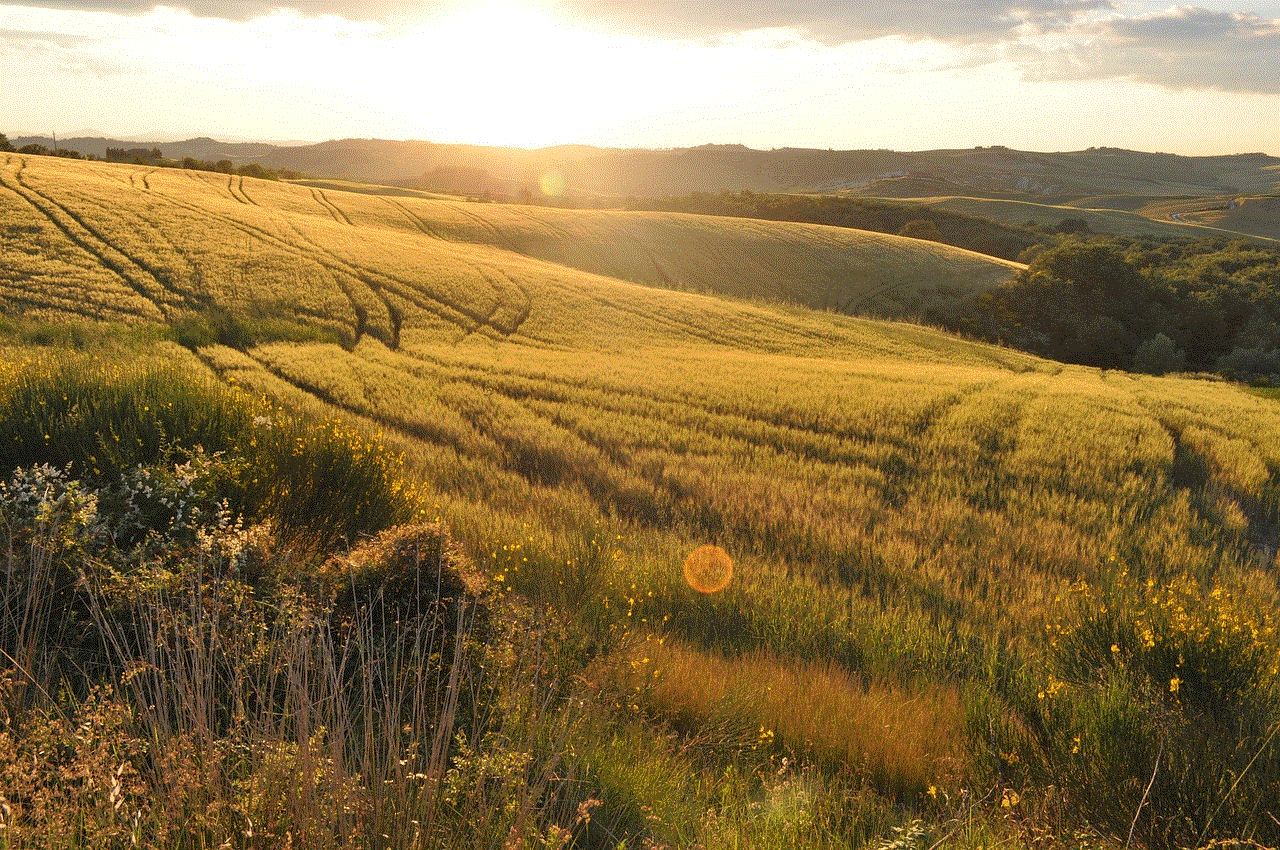can you get hacked through discord
Discord is a popular communication platform used by millions of people around the world. It offers features such as voice and text chat, file sharing, and screen sharing, making it a convenient tool for individuals, businesses, and communities. However, with the rise of cybercrime, one may wonder if it is possible to get hacked through Discord. In this article, we will explore the potential security risks and vulnerabilities of using Discord and provide tips on how to protect yourself from being hacked.
Firstly, it is important to understand what hacking is and how it can be done. Hacking is the unauthorized access to someone’s computer or network without their knowledge or consent. It can be done through various methods, such as phishing, malware, and social engineering. Hackers often target popular platforms like Discord to gain access to sensitive information, steal personal data, or spread malicious content.
One of the main concerns with Discord is the possibility of falling victim to a phishing attack. Phishing is a type of cyber attack where a hacker poses as a legitimate entity to trick individuals into providing sensitive information, such as login credentials. Discord users are vulnerable to phishing scams, especially through direct messages or links shared in chat rooms. These messages may appear to be from a friend or a trusted source, but they can lead to a fake login page designed to steal your information.
Another way you can get hacked through Discord is by clicking on malicious links or downloading infected files. Discord allows users to share files, including images, videos, and documents, making it a potential target for malware distribution. Hackers can disguise malware as innocent-looking files and trick users into downloading and opening them, giving them access to your device and its data. It is important to be cautious when opening links or downloading files from unknown sources on Discord, as they may contain harmful content.
Discord also has a feature called webhooks, which allows the integration of third-party applications with the platform. While webhooks can be useful for streamlining workflows and automating tasks, they can also pose a security risk. Hackers can use compromised webhooks to send malicious messages or links to Discord servers, potentially infecting multiple users at once. It is crucial to regularly review and manage your server’s webhooks to prevent any unauthorized access.
Furthermore, Discord has a feature called ‘permissions’ that allows server owners to control what users can and cannot do within the server. However, if these permissions are not set up correctly, it can leave the server vulnerable to attacks. For example, a malicious user can be given admin permissions, allowing them to ban or kick other members, delete channels, or even take control of the server. It is essential to regularly review and update your server’s permissions to prevent any unauthorized access.
In addition to these potential hacking methods, Discord’s chat function can also be exploited by hackers. Users can embed links in their messages, making it easy for hackers to hide malicious links among legitimate ones. Once clicked, these links can lead to fake websites or download malware onto your device. It is crucial to be cautious when clicking on links in Discord, especially if they are from unknown sources.
Moreover, Discord servers are not immune to data breaches. In July 2020, it was reported that a hacker gained access to a popular Discord server and downloaded its entire archives, including private messages, user data, and server information. While Discord has taken steps to improve its security, such incidents serve as a reminder that even popular platforms are not entirely safe from potential breaches.
With the increasing popularity of Discord, it has also attracted the attention of hackers and cybercriminals. They often target large Discord communities and servers, which can have thousands of members, making it easier to spread malware or steal sensitive information. It is crucial to be aware of the potential risks and take necessary measures to protect yourself and your server.
So, can you get hacked through Discord? The answer is yes, but it is not inevitable. There are steps you can take to secure your account and prevent hacking attempts. The first and most crucial step is to enable two-factor authentication (2FA). 2FA adds an extra layer of security to your account by requiring a code from your phone to log in, making it difficult for hackers to access your account, even if they have your login credentials.
Another way to secure your Discord account is by using a strong and unique password. Avoid using the same password for multiple accounts and make sure to change it regularly. You can also use a password manager to generate and store complex passwords for your various accounts.
Furthermore, it is essential to be cautious when sharing personal information on Discord. Avoid sharing sensitive information, such as your real name, address, or phone number, in public chat rooms. Be wary of messages or friend requests from unfamiliar users, as they may be phishing attempts.
If you are a server owner, it is crucial to regularly review and manage your server’s settings, permissions, and webhooks. It is also recommended to limit the number of admin roles and have a designated moderator to oversee the server’s activities. You can also use Discord’s audit log feature to track any changes made to your server and identify any suspicious activity.
In conclusion, while Discord is a popular and convenient platform, it is not immune to potential hacking attempts. Hackers can exploit various features and vulnerabilities to gain access to your account or server. It is crucial to be aware of these risks and take necessary precautions to protect yourself and your server. By following the tips mentioned in this article, you can enjoy using Discord without worrying about being hacked. Remember to always stay vigilant and report any suspicious activity to Discord’s support team.
can i create a youtube channel for my child
In recent years, the rise of YouTube has opened up endless possibilities for content creators, allowing them to share their talents, knowledge, and experiences with the world. With over 2 billion monthly active users, it’s no surprise that many parents are now considering creating a YouTube channel for their child. However, this decision can come with its own set of concerns and considerations. In this article, we’ll explore the question – can I create a YouTube channel for my child?
First and foremost, it’s important to understand the guidelines set by YouTube regarding children on their platform. According to their terms of service, YouTube requires users to be at least 13 years of age to create an account and use the platform. This means that technically, a child under the age of 13 cannot have their own YouTube channel. However, there are some exceptions to this rule.
One way to get around this age restriction is to create a parent-managed account for your child. This means that you, as a parent, will be responsible for managing and monitoring your child’s account. This option is suitable for younger children who are not capable of managing their own channel. It also allows parents to have more control over the content their child is watching and posting.
Another option is to create a channel under your own account and feature your child in the videos. This is a popular choice for parents who want to document their child’s growth and milestones. However, it’s important to note that YouTube’s algorithm may not always differentiate between child-friendly and adult content, so parents must be cautious when uploading videos featuring their child.
Now that we have established the guidelines for children on YouTube, let’s dive into the pros and cons of creating a YouTube channel for your child.
Pros:
1. Creativity and self-expression – YouTube can be a great platform for children to unleash their creativity and express themselves. Whether it’s through music, art, or storytelling, children can use YouTube to share their talents and passions with the world.
2. Education and learning – YouTube is not just about entertainment, it can also be a valuable tool for learning. Many educational channels on YouTube offer fun and engaging content that can help children learn about various subjects in a more interactive way.
3. Building confidence and communication skills – Being in front of the camera and sharing their thoughts and ideas can help children build confidence and improve their communication skills. This can be especially beneficial for children who are shy or introverted.
4. Connecting with others – YouTube has a huge community of creators and viewers, and creating a channel for your child can help them connect with other children who share similar interests. This can be a great way for children to make new friends and learn from others.
5. Potential for income – As your child’s channel grows in popularity, there is a possibility of earning money through YouTube’s Partner Program. This can be a great way for children to learn about the value of hard work and responsibility.
Cons:
1. Safety concerns – One of the biggest concerns for parents when it comes to creating a YouTube channel for their child is safety. The internet can be a dangerous place, and it’s important for parents to monitor their child’s online activity and ensure they are not sharing any personal information or interacting with strangers.
2. Cyberbullying – As with any online platform, there is a risk of cyberbullying on YouTube. Parents must be vigilant and monitor the comments on their child’s videos to prevent any negative or hurtful interactions.
3. Time commitment – Creating and managing a YouTube channel can be a time-consuming process. Parents must be willing to dedicate the time and effort required to help their child grow their channel, which may mean sacrificing some of their own time.
4. Negative comments and criticism – While most viewers on YouTube are supportive and encouraging, there is always a possibility of receiving negative comments and criticism. Children may not be equipped to handle these comments, and parents must be prepared to shield their child from any negativity.



5. Pressure and burnout – As a child’s channel grows in popularity, there can be added pressure to constantly create new and engaging content. This can sometimes lead to burnout, especially for younger children who may not fully understand the expectations and demands of having a YouTube channel.
In conclusion, there are both pros and cons to creating a YouTube channel for your child. It’s important for parents to carefully consider all the factors before making a decision. If you do decide to create a channel for your child, it’s crucial to monitor their activity, ensure their safety, and be aware of the potential challenges that may arise. With proper guidance and support, a YouTube channel can be a fun and enriching experience for both parents and children. So, can you create a YouTube channel for your child? The answer is yes, but it’s essential to do so with caution and responsibility.
how to explain sexuality to a young person
Sexuality is a natural and integral part of being human. It encompasses a wide range of feelings, behaviors, and identities related to our sexual desires and expressions. As adults, we often struggle with understanding and accepting our own sexuality, let alone explaining it to a young person who is still navigating their own identity and understanding of the world. However, it is crucial that we have open and honest conversations with young people about sexuality to help them develop a healthy and positive attitude towards their own sexuality and that of others.
Explaining sexuality to a young person can be a daunting task, as it involves discussing sensitive and often taboo topics. But it is important to remember that sexuality is not just about sex, it is about understanding our bodies, our feelings, and our relationships with others. So, how can we approach this topic in a way that is informative, age-appropriate, and respectful? In this article, we will provide a comprehensive guide on how to explain sexuality to a young person.
What is sexuality?
Before we dive into how to explain sexuality to a young person, it is crucial to first understand what sexuality is. Sexuality is a broad term that encompasses various aspects of human identity and behavior. It includes our sexual orientation, gender identity, sexual desires and attractions, relationships, and sexual expression. It is a fundamental aspect of our being, and it is shaped by various factors such as biology, culture, and personal experiences.
Sexuality is a spectrum, and it is not limited to just two categories of male and female. People can have diverse sexual orientations, including heterosexual, homosexual, bisexual, and asexual. They can also identify as male, female, non-binary, or gender-fluid. It is essential to recognize and respect these differences when explaining sexuality to a young person.
Why is it important to talk about sexuality?
Many parents and caregivers feel uncomfortable talking about sexuality with young people, believing that they are too young to understand or that it will encourage them to engage in sexual activities. However, avoiding these conversations can do more harm than good. Young people are constantly exposed to sexual content through media, peers, and the internet, and it is our responsibility as adults to provide them with accurate and age-appropriate information.
Talking about sexuality can also help young people develop a positive attitude towards their own bodies and sexual desires. It can help them understand and respect the boundaries of themselves and others, and make informed decisions about their sexual health and relationships. When we have open and honest conversations about sexuality, we can also break down the stigma and shame surrounding it, and create a more inclusive and accepting society.
How to explain sexuality to a young person?
1. Start early
It is never too early to start talking about sexuality with young people. As soon as they start asking questions about their bodies or the differences between boys and girls, it is a good time to start the conversation. This way, they will grow up with a healthy and positive attitude towards their bodies and sexuality.
2. Use age-appropriate language
When explaining sexuality to a young person, it is essential to use language that is appropriate for their age and level of understanding. Avoid using medical or scientific terms that might confuse or scare them. Instead, use simple and straightforward language that they can understand.



3. Be honest
Young people are more perceptive than we give them credit for, and they can sense when we are not being honest with them. It is crucial to be open and honest when talking about sexuality, even if it feels uncomfortable. If you don’t know the answer to a question, it is okay to say so and find the answer together.
4. Use everyday situations to start the conversation
Sexuality does not have to be a formal sit-down conversation. You can use everyday situations such as watching a movie or TV show with sexual content, to start the conversation. Ask them what they think about the scene, and use it as an opportunity to talk about consent, healthy relationships, and sexual desires.
5. Emphasize consent
Consent is a crucial aspect of sexuality that is often overlooked. It is essential to explain to young people that they have the right to say no to any sexual activity and that they should respect the boundaries of others. Teaching them about consent from a young age can help prevent sexual harassment and assault in the future.
6. Discuss healthy relationships
Healthy relationships are built on mutual respect, trust, and communication. When talking about sexuality, it is essential to emphasize the importance of healthy relationships. This includes discussing the different types of relationships, such as friendships, romantic relationships, and sexual relationships. Teach them about the importance of communication, boundaries, and respect in all types of relationships.
7. Address gender stereotypes
Gender stereotypes are deeply ingrained in our society, and they can have a significant impact on young people’s understanding of sexuality. It is crucial to challenge these stereotypes and teach young people that there is no one “right” way to express their gender or sexuality. Encourage them to explore their own identities and to respect the identities of others.
8. Talk about puberty and reproductive health
Puberty can be a confusing and overwhelming time for young people, as their bodies go through significant changes. It is essential to discuss these changes and reassure them that it is a normal part of growing up. This is also a good time to talk about reproductive health, including menstruation, contraception, and sexually transmitted infections.
9. Address online safety
The internet is a vast and often unregulated space, which can expose young people to harmful and inappropriate content. It is crucial to talk to them about online safety and the potential dangers of sharing personal information or engaging in risky online behaviors. Teach them about consent in the digital world and how to seek help if they encounter any concerning content or situations online.
10. Be open to ongoing conversations
Talking about sexuality should not be a one-time conversation. It is a topic that should be discussed continuously as young people grow and develop. Encourage them to come to you with any questions or concerns they may have and be open to having ongoing conversations about sexuality.



In conclusion, explaining sexuality to a young person is an ongoing process that requires patience, honesty, and open-mindedness. It is crucial to provide them with accurate and age-appropriate information, and to create a safe and non-judgmental space for them to ask questions and share their thoughts and feelings. By having open and honest conversations about sexuality, we can help young people develop a healthy and positive attitude towards their own sexuality and that of others.
